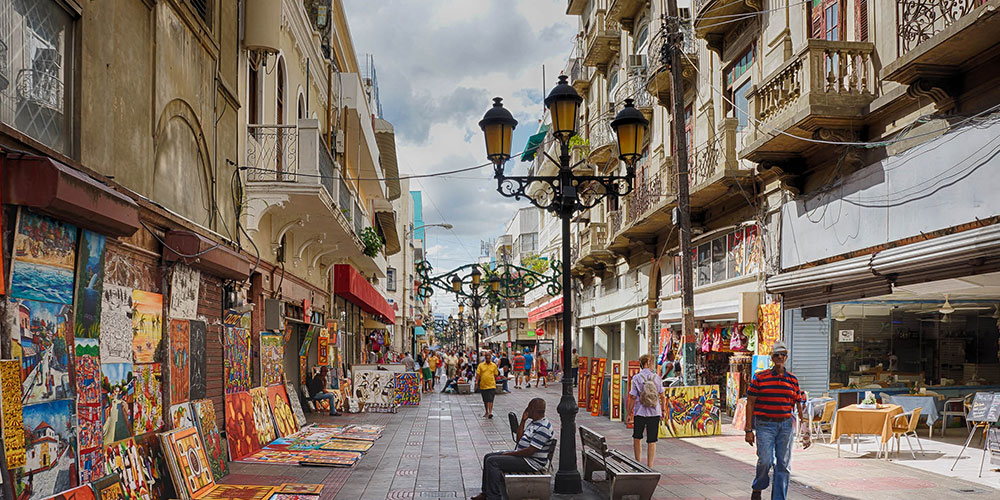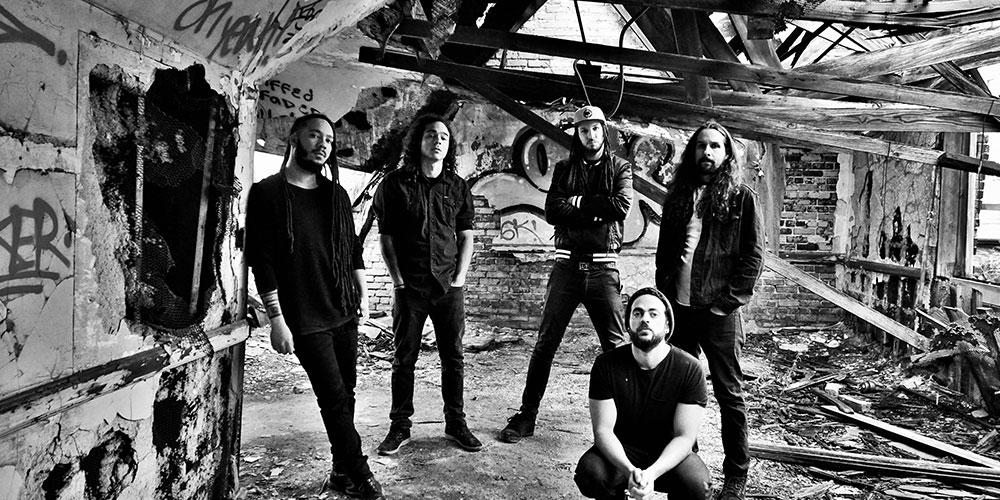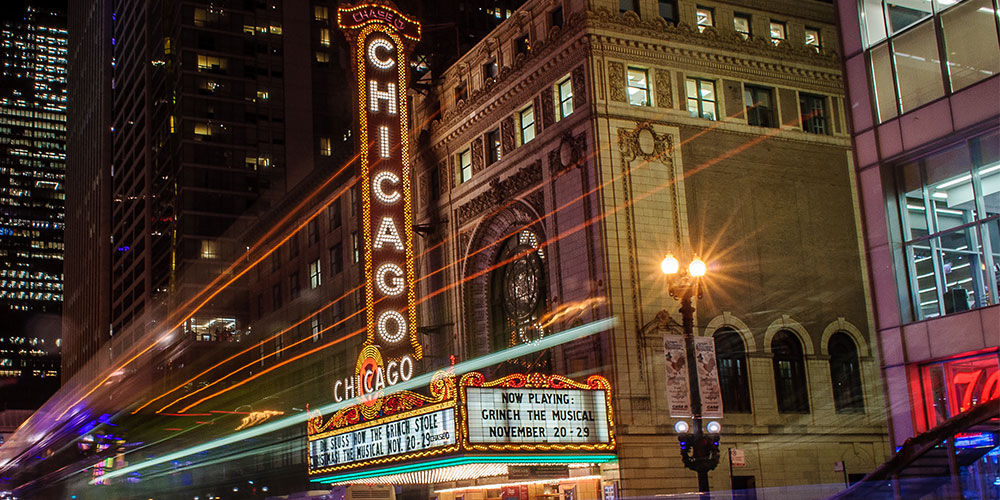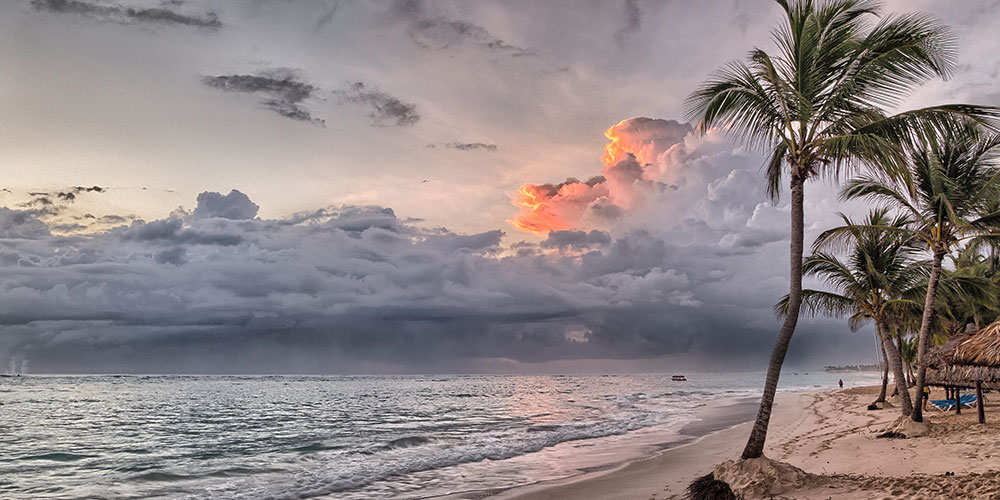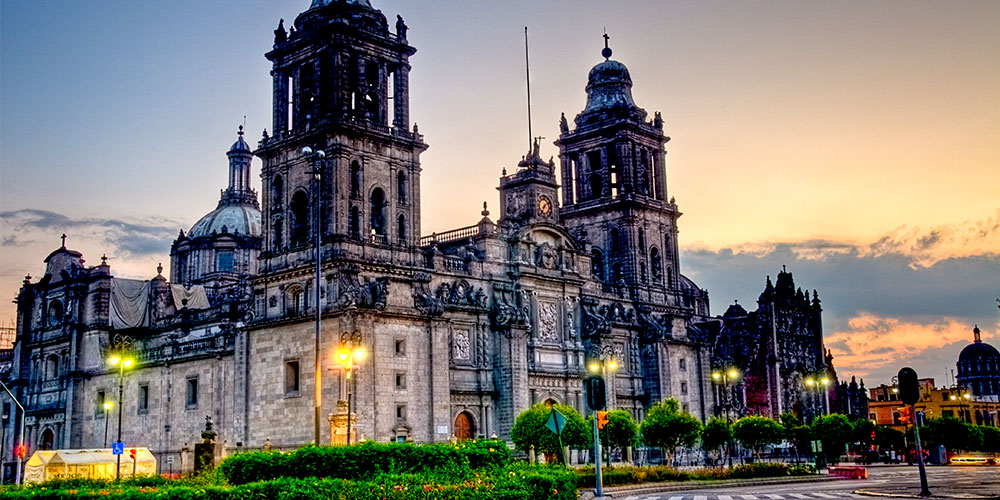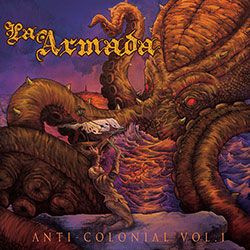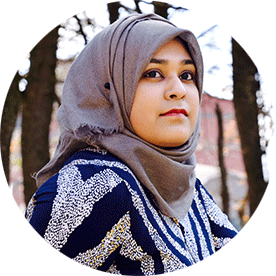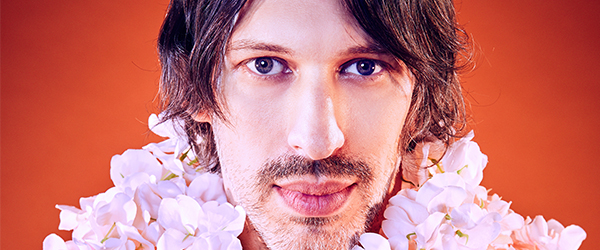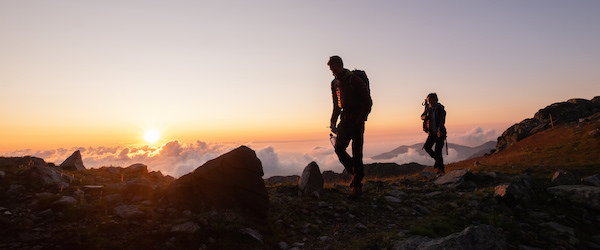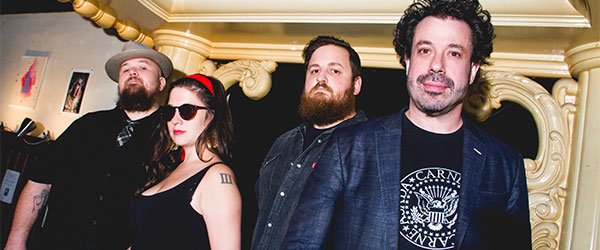Bird Streets is the musical endeavor of New York songwriter John Brodeur. In need of a creative ...
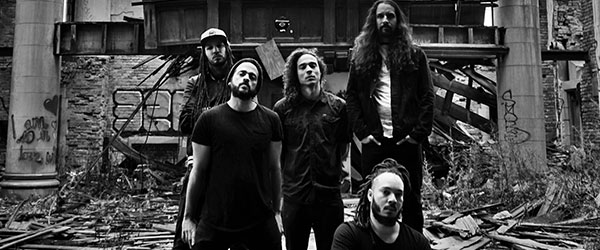
During the early and mid-2000′s, La Armada established themselves as one of the most influential bands in the Hardcore/Punk scene in their native Dominican Republic where they played countless shows and notched two releases under their belt. In 2007, after making a tough but groundbreaking decision to leave a land where even DIY culture is a commodity and very limited platforms existed to present their music, the band decided to relocate to Chicago.
Fast forward a few years, La Armada released their latest album “Anti-Colonial Vol. 1” on March 30th. It’s a unique style of crossover – a blend of punk, hardcore, metal, and rhythms native to their island. The songs come with a message, an invitation to stand up against the oppression and corruption found in their native and adoptive countries. The songs range from fast and heavy to crushing downtempo beats, toppled with witty lyrics that touch on the socio-economic barriers that stagger the working class of today. Be sure to check out “Fire” from the release embedded below.
— — —
Mehnaz Ladha: Kicking it off with your hometown area of Santo Domingo, Dominican Republic, what really stands out and makes it special to you? Where would you send a first-time visitor to get a real sense of the surrounding area?
Paul Rivera: What makes the city so special is the juxtaposition of chaos and paradise. Chaos in the sense that traffic can be crazy and noisy, but at the same time, you’ll find some of the most unbelievable greenery you will ever see – super vivid colors and tons of fruit stands on the streets. The ocean is also never more than five- or 10-minutes away from whatever point you are in the city. That contrast is what makes it really special.
If I were to send a first-timer there, I would send them to go check out the Colonial Zone, which is considered the first city in the American continent. It’s a very pleasant stroll through the old architecture and there’s a lot of old mixed with new, kind of a like a Bohemian vibe. You can catch some really good live music while you’re there, as well.
ML: How does the music scene of Santo Domingo compare to Chicago and other cities you have performed in?
PR: In Santo Domingo, all the shows are mostly tropical and native music such as merengue, bachata and stuff like that. That’s what we grew up on. The rock scene is a very small subdivision of that. In comparison to Chicago, there’s no comparison. It’s two completely different worlds.
In general, the music scene is just so much bigger in Chicago and more diverse. In Santo Domingo, it’s more tropical, Caribbean and reggaetón. It’s like two parallel universes.
READ MORE: Travel Profile: Justin Furstenfeld of Blue October
ML: What was your first real exposure to music? How did you get inspired to create your own and eventually pursue it as a career?
PR: My first exposure to music was just listening to the stuff that my parents would play around the house, all of that old merengue from the 70’s and 80’s. Being born and raised there, you had to learn to dance pretty quickly or otherwise, you would be made fun of. That was always something that people there learned from a young age. Those are my earliest memories of maybe at three-, four- or five-years-old at family gatherings.
I didn’t want to pursue it as a career until I found rock, punk and all that good stuff. Before that, I was just more of a passive listener. I think the turning point for many people my age was 1994, when all those albums came out from Weezer, Green Day and stuff like that. It just caught me at the right age, right time. Me, and a million of others.
ML: Have there been subtle nods to bachata and merengue in your music?
PR: Yeah, absolutely! In the new album especially, we’ve been able to capture it the most and the best. We make a conscious effort to incorporate those elements into the hardcore punk that we play because that is what precisely sets us apart from any other band. We don’t want to sound like anybody else. We want to do our own thing and we consider that to be precisely our own thing. We play hard punk and metal riffs on top of Afro-Caribbean beats.
ML: One of the other characteristics that sets La Armada apart from other bands is the incorporation of Spanish in your songs. Has that affected the band’s appeal to American audiences?
PR: The band actually started that way and English has been a recent addition to the writing process. We have all been in the band since 2001 and we were all still living over there [in Santo Domingo]. That was just the natural thing to do, to just write in Spanish. It was our first language obviously and it made no sense to write in English.
READ MORE: Travel Profile: Set Mo
English came way later, probably four years ago with our “Crisis” EP. We really had to put some thought into the decision because you don’t want to lose your roots. You don’t want to lose what you stand for but we had to face the reality that we live in the [United States] now and this is where we tour. Being on the road, we play a lot of shows and always felt that there was a missing link. No matter how much we played, we could see it in their faces that they’re dying to sing along. Whether that was an all-white American crowd or even with a lot of second or third generation Latinos who have lived here their whole lives and don’t speak that much Spanish.
So, part of the decision was musical inspiration. Another part of it was seeing that and wanting to be able to connect with the people living here. And, the last part was just living here, we are affected by the things that go on in the US. There is subject matter that’s better addressed in that native language, so if we’re writing about Chicago, chances are that it’s going to make a lot of sense to use English, because there’s a lot of terminologies that just makes more sense in English.
ML: It’s incredible that you and band have been able to not compromise on your roots and found a successful way to mesh your two worlds together.
PR: We used to worry about it a lot more. If we can have more and more people feel represented by us, because we do that, that makes us happy too. Plus, there’s also the fact that we speak two languages so why not use them.
ML: To create music, and traveling to promote it, must be such a feeling. What’s the most impactful and meaningful part you cherish about it? Does the travel help inspirationally?
PR: The thing that I cherish the most about touring is those connections that we make with people and the friendships we form. I could go to many, many places in the world tomorrow and have a place to stay or a genuine friend that I trust to hang out with. That’s an incredible feeling, especially after you have been doing it for years. You realize how uncommon that is in most people’s lives.
Traveling definitely inspires us musically, emotionally and in every sense. Musically, traveling and touring has exposed us to broader music genres. Things that we didn’t even know existed, all of a sudden, we see ourselves being influenced by them. Also, the emotional and psychological aspect of traveling where I think traveling is the best education anyone can give themselves. You just gain so much perspective from interacting with different cultures. It just makes your life richer and your music richer.
ML: Your latest album, “Anti-Colonial Vol. 1,” came out on March 30th. Reading through some of the lyrics and listening to the songs, there’s a lot of emotion in album and a strong call to stand up against repression. Describe the inspiration behind the release.
PR: The message is basically plastered in the title itself. Anti-colonial, to us, is not thinking about it in terms of we come from an island that was colonized. That’s a part of it but it’s not just that. A lot of it has to do with neocolonialism, which we consider has to do with the different ways the government or society can influence a person or a society in a negative way. That can be a multinational corporation that goes to an island like ours to extract minerals and waste the environment. That could be the influence a pharmaceutical company may have on a population like the opioid epidemic we have now. That could be the displacement of indigenous people.
It seems unfortunate that people in general, or certain kinds of people, need someone to always put down. That’s kind of where we are going with it. It’s kind of a broad thing to search within yourself, find your roots and to find who you are. You don’t have to accept these external factors that are trying to change your way of life of customs.
ML: That’s a very powerful and important message to convey. Reflecting on your career as a musician, what has been the most memorable performance for you yet? What made it so special?
PR: There’s been a couple of those. I like to bring up our home shows in Santo Domingo that we do every other year. Those are really special, because that’s our hometown and there are people there who have seen us play since we were 13. They keep up with what we do and when we go down there, the shows are packed. We see the reaction and see how happy people are about the progress the band has made. That’s such a breath of motivation to keep going. To know that so many people in that scene are paying attention to what you’re doing and rooting for you.
We also just did our release show in Chicago and that felt really special, because this is our adopted home. It was a goal to kind of have a sold-out release show, and people showed up to show their support. That makes you feel like you’re doing things right.
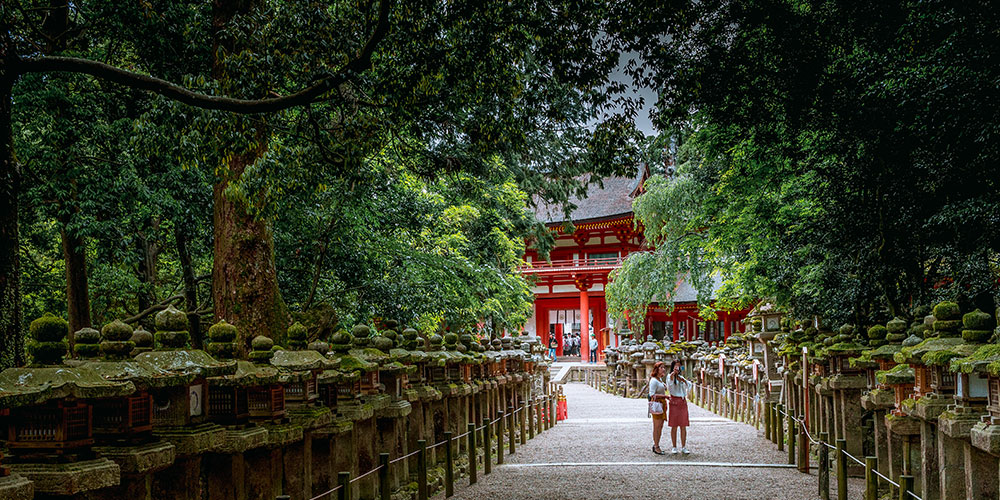 © Ray
© Ray
ML: What are your top three destinations that you would want to perform in sometime in the future?
PR: Japan definitely. I’ve been personally about five times and I’m dying to take the band there. I’m dying to see Japanese people reacting to our show and especially, our songs in Spanish.
I’d say the other one would be Spain. We went to Europe last summer, but we didn’t get a chance to go to Spain. Very early on, we would send records there to entertain directors and distributors. We’ve always had people who have known our music there but never had a chance to go. I went to Spain personally and seeing the country that colonized your island was a funny feeling because you pick up on all these traits and different ways of doing things that correlate to what you grew up with. You can see where it’s coming from. It’s kind of like a mind-blowing moment, and I want to experience that as a band. I want to take it to the people over there too.
READ MORE: Travel Profile: Johnny Iguana of the Claudettes
ML: One of our core objectives at SCP is to bring people together while traveling, not only to influence people to see and appreciate our beautiful world, but to also minimize cross-cultural divides. What effect does traveling, specifically surrounding music, have on humans in this regard? How has it broadened your perspective of the world?
PR: It’s the best education a person can give themselves. It’s invaluable. The quickest way to guide someone out of ignorance is to have that person travel. It’s the number one thing. Luckily, music takes artists to different places across the globe. The moment you take anything like that for granted is the moment you should probably stop and start doing something else. To me, it’s not the most but one of the most special things you could do.
ML: Whether you’re traveling for the band or for leisure, what are you most excited about when visiting a new destination?
PR: The food! Vegan food specifically. It’s a treat to try vegan preparations of the culinary arts and flavors of places we visit. We were just in Mexico where we thought it would be difficult to eat vegan once you’re outside of Mexico City and in smaller towns but it was actually easy. Everywhere we went, it was just vibrant and people were very accommodating.
ML: Lastly, what do the next couple of months have in store for you and the band?
PR: Traveling, of course. We’re going to California in May. We go to Canada in June. Then we go to the Dominican Republic in July and in August. We’ll do a full US and Canadian tour.
— — —
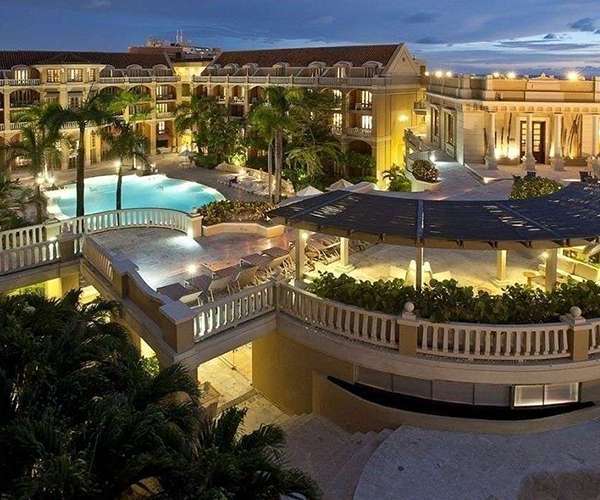

Located near the heart of Cartagena's old city, this hotel provides local, Spanish hospitality with French luxury.
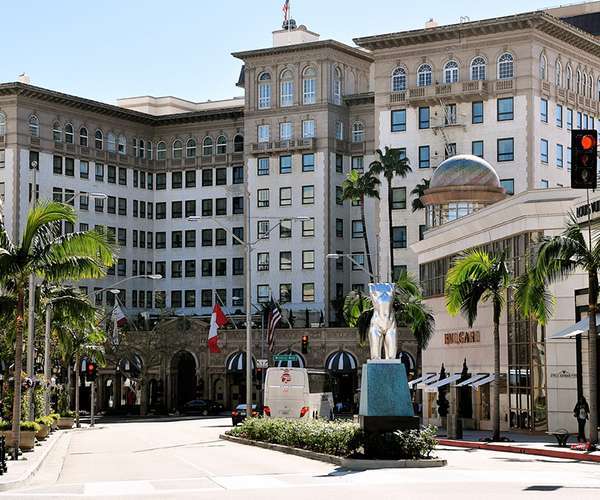

Nestled in the heart of Beverly Hills, this luxurious hotel's history rivals thar of any hotel in the world, and the famous Rodeo Drive is a short walk away.
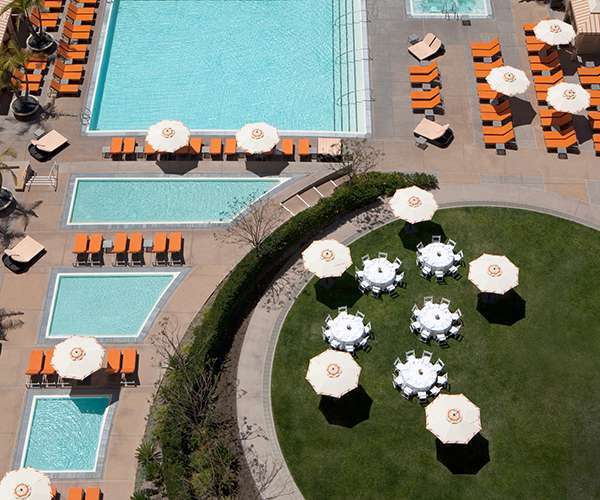

In search rest and relaxation, near some of the worlds best shopping? Stay. Here.
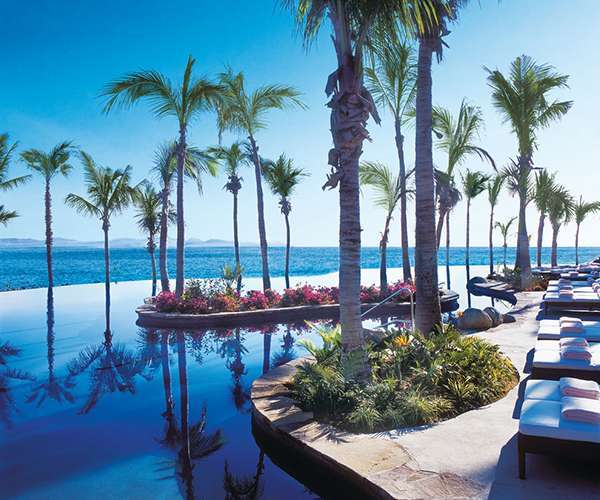

Set on the tip of the Baja Peninsula, this grandiose property is redefining tranquility and what a relaxing vacation should entail.






